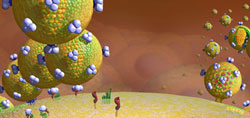For more than 15 years, outbreaks of acute HCV have been reported among HIV-positive men who have sex with men (MSM), often associated with ChemSex (use of certain drugs before or during sex between MSM). Although HCV is less common among HIV-negative MSM, it was found among nearly 5% (18/375) of the Amsterdam PrEP Demonstraton Project.(1)
Treating acute or recent HCV infection (6 to 12 months after infection) may reduce transmission rates, but it is not clear when to start, what to use, and how long to treat. Current guidelines from the American Association for the Study of Liver Diseases and the Infectious Diseases Society of America (AASLD/IDSA) recommend monitoring for at least 12 to 16 weeks before treating, to see whether acute HCV spontaneously clears; if it doesn’t, the guidelines recommend treatment for same duration, and with the same regimens used for chronic hepatitis C. (2)
Ideally, treatment could be shortened during acute or recent HCV infection; to date, trials in HIV-positive people have had mixed results. Suboptimal cure rates were reported from a study in 19 people (14 of them HIV-positive) with recent HCV infection, who were treated with 6 weeks of sofosbuvir plus ribavirin (a regimen that is no longer recommended). Only 21% (3/14) of HIV-positive participants were cured, with most treatment failures due to relapse.(3)
Shortening the duration of currently recommended regimens may be more effective in acute HCV. A trial in 26 HIV-positive people with acute HCV reported a 77% (20/26) cure rate after 6 weeks of sofosbuvir/ledipasvir; there were 3 post-treatment relapses, 1 reinfection and 2 lost to follow-up.(4) REACT, an ongoing 250- person phase 3 trial in Australia, Europe and New Zealand, is comparing 6 or 12 weeks of sofosbuvir/velpatasvir in both HIV-negative and HIV-positive people with recent HCV infections.(5)
References:
1.Hoornenborg E1, Achterbergh RCA, Schim van der Loeff MF, et al; Amsterdam PrEP Project team in the HIV Transmission Elimination AMsterdam Initiative, MOSAIC study group. MSM starting preexposure; prophylaxis are at risk of hepatitis C virus infection. AIDS [Online] 2017 Jul 17 [Cited 2017 August 1] 31(11):1603-1610. Available from: 10.1097/QAD.0000000000001522.
2. AASLD/IDSA HCV Guidance: Recommendations for Testing, Managing, and Treating
Hepatitis C. [Online] [Cited 2017 August 1}. Available from: http://www.hcvguidelines.org
3. Martinello M, Gane E, Hellard M, et al. Sofosbuvir and ribavirin for 6 weeks is not effective among people with recent hepatitis C virus infection: The DARE-C II study. Hepatology (Online). 2016 Dec [Cited 2017 August 1] ;64(6):1911-1921. Available from: 10.1002/hep.28844.
4. Rockstroh JK, Bhagani S, Hyland RH, et al. Ledipasvir-sofosbuvir for 6 weeks to treat acute hepatitis C virus genotype 1 or 4 infection in patients with HIV coinfection: an open-label, single-arm trial. Lancet Gastroenterol Hepatol [Online] 2017 May {Cited 2017 August 1] ;2(5):347-353. Available from: 10.1016/S2468-1253(17)30003-1.
5. Dore GJ. Shorter Durations and Pan-genotypic Regimens: The Final Frontier. 4th International HIV/Viral Hepatitis Co-infection Meeting. 22-23 July, Paris, France.
08/07/17
How Quickly Can Hepatitis C Be Cured?
Source: Reporting from Paris for the PRN News: Tracy Swan

